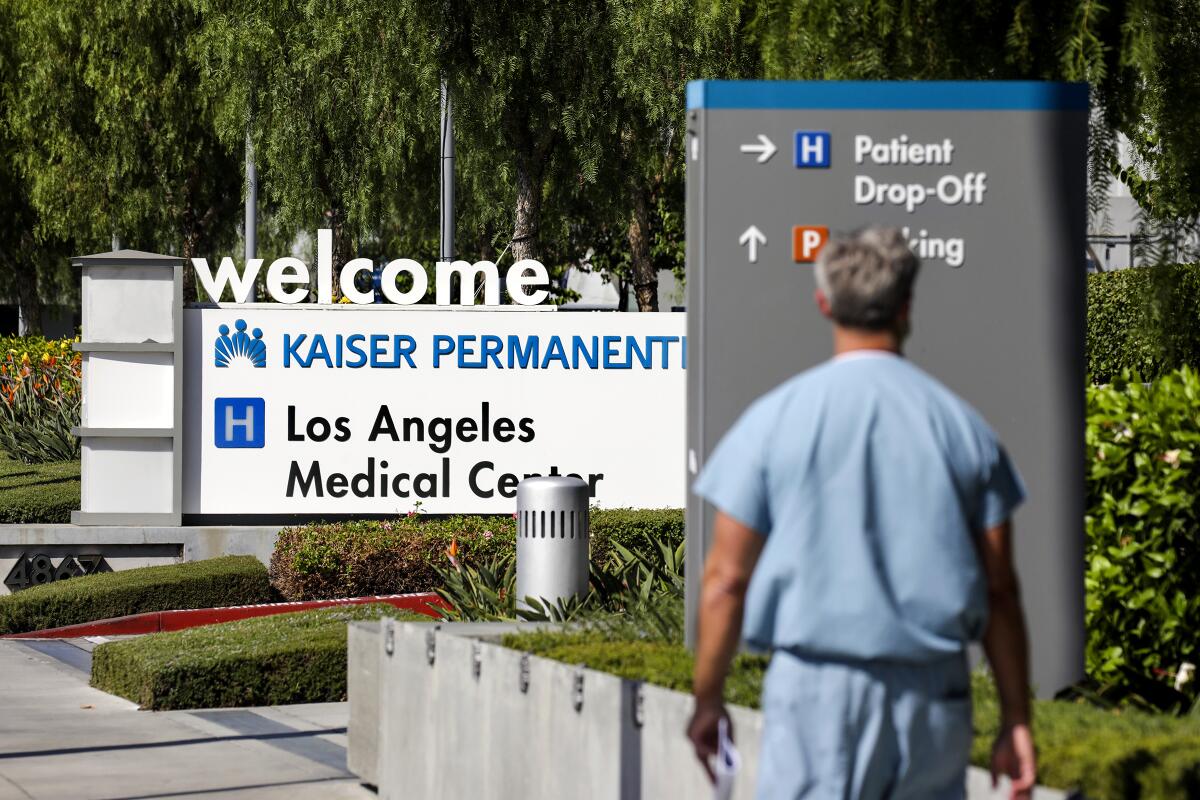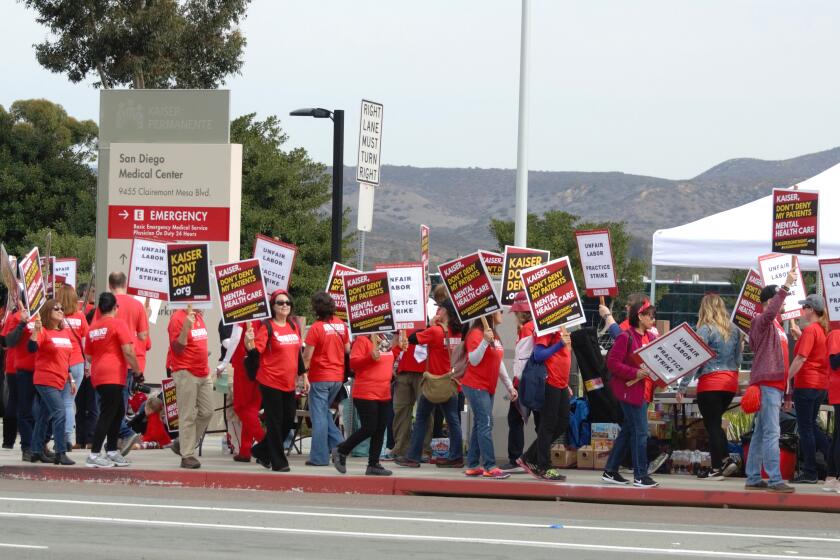L.A. City Council backs $25 minimum wage for some health workers

The Los Angeles City Council voted Tuesday to boost the minimum wage for workers at privately owned hospitals to $25 an hour, rather than sending the question to the November ballot for voters to decide.
The wage requirement will cover a wide range of workers, including nurses, aides, housekeepers, guards, janitors and other employees who are not supervisors or managers.
“Burned out and traumatized from the pandemic, many feel disrespected and undervalued and have left the profession, and more are considering leaving soon,” SEIU-UHW, a union that represents California healthcare workers, said in a statement. “Raising the minimum wage helps acknowledge their vital, life-saving work and retain workers for Los Angeles’ future healthcare needs.”
The measure will apply to privately owned health facilities in the city including acute-care hospitals, psychiatric hospitals, and clinics or skilled nursing facilities that are part of such hospitals.
The union, SEIU-UHW, had gathered enough signatures to get the measure onto the November ballot. L.A. City Council members then had the option to either put the decision before voters in November — or to simply adopt the measure. At the Tuesday meeting, representatives of local hospitals and business groups urged the council to hold off and leave the decision to voters.
Kaiser Permanente workers won their top priority — scrapping a two-tier pay system — in the settlement reached Saturday, averting a strike.
“We are urging an economic analysis to better understand the impacts on the city, workers, healthcare providers and economy,” said Denise Kniter, policy manager with the Los Angeles County Business Federation.
Instead, council members voted 10 to 2 to move forward with the wage measure, with Councilmembers Paul Krekorian and Joe Buscaino voting against it. Councilmember John Lee recused himself from the Tuesday vote because he sits on the board of West Hills Hospital, according to his deputy chief of staff, Brenton Tesler.
“Today we have an opportunity to support our healthcare workers — those that have been on the front line of this pandemic, putting themselves and their families at risk,” said Councilmember Curren Price, who moved to adopt the measure.
Hospital representatives argued that the measure was arbitrary and unfair because it did not cover workers at all L.A. health facilities. A coalition opposed to the wage measure contended that it would exclude employees at 90% of healthcare facilities in the city, drive up costs, and pull workers away from health facilities that serve disadvantaged Angelenos.
“This is an incredibly, incredibly flawed measure,” said Adena Tessler, regional vice president for L.A. County for the Hospital Association of Southern California. “People doing the same jobs at two different facilities” — possibly a few miles apart — “are not getting paid the same.”
A Kaiser Permanente Southern California representative said the move would hurt the entire healthcare system in Los Angeles, especially community clinics and public health facilities. “They will face the daunting choice of significantly raising their minimum salaries in order to compete for the very limited workforce — or settle for less staffing and widening the wage gap,” said Yesenia Monsour, senior director of regional government and community relations. “The impact to the health of your communities is at stake.”
In response to questions about which facilities were included, SEIU-UHW spokesperson Renée Saldaña said “city government cannot legally set rates for county and state workers.” Other efforts are underway at the state level to fund a wage boost at community clinics, which “did not make record profits during the pandemic,” Saldaña said.
Hospital workers testified and urged the council to adopt the measure, arguing that higher wages are needed for employees who have faced the grueling demands of the COVID-19 pandemic and punishing inflation. Licensed vocational nurse Daniel Franquez said, “We risk our lives every day.”
“We expose ourselves to COVID every day. We keep patients alive every day. We are worth $25 an hour,” said Franquez, who works at Southern California Hospital in Hollywood. “But today, by flipping burgers in some fast food restaurants, you can make more than what a lot of healthcare workers make.”
During the pandemic, “I put my life on the line — and based on the wages I’m receiving, I can barely afford to pay my bills and put food on the table for my kids,” said Brittany Everidge, a ward clerk transcriber at Kaiser Permanente Los Angeles Medical Center.
Because the Tuesday vote was not unanimous, the matter will come back before the council for a second vote next week. The L.A. wage measure, which is expected to go into effect soon after that second vote, also includes annual cost-of-living increases beginning in January 2024. Under the measure, employers are barred from funding the wage increases by laying off workers, reducing their hours, or cutting back on vacation or other benefits.
Backers of the L.A. measure are also seeking a $25 minimum wage for workers at health facilities in the cities of Baldwin Park, Culver City, Downey, Duarte, Inglewood, Long Beach, Lynwood and Monterey Park.
More to Read
Sign up for Essential California
The most important California stories and recommendations in your inbox every morning.
You may occasionally receive promotional content from the Los Angeles Times.











